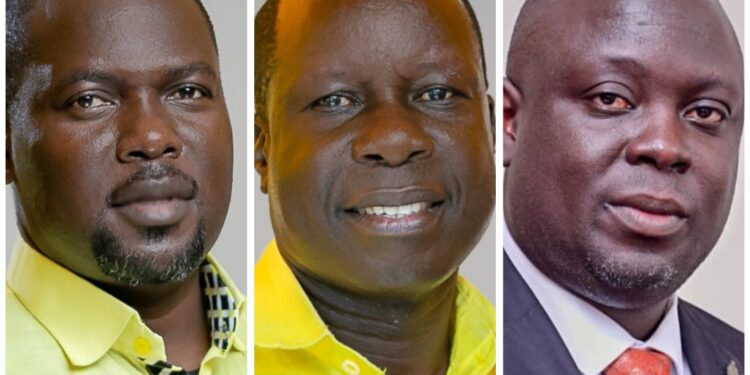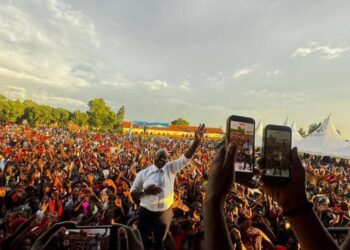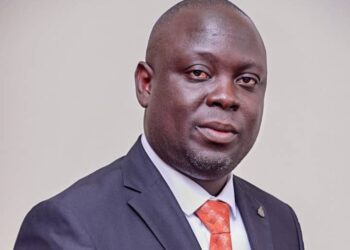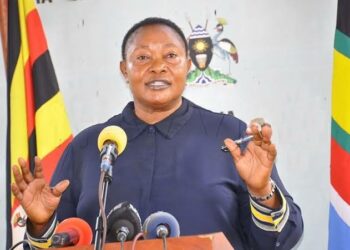Intraparty discipline is a key ingredient in the growth of sober, competitive multiparty politics. At the corner of time, Uganda has another chance to shine as a progressively democratising country.
Next year, 2026, it will be 30 years since Ugandans first got to exercise real power by enjoying the right to directly elect their leaders, from the grassroots all the way to the top-the President. It will be an anniversary of renewal, a culmination of decades of struggle and nation building.
It was in the year 1996 when Ugandans elected a President directly by universal adult suffrage with the incumbent President, Gen. (Rtd) Yoweri Museveni, getting blessed as the first Ugandan ever to carry that popularly procured lubengo (grinding stone-a metaphor for Uganda’s affairs) on his head, a rite of passage that cleared the way for him to transition from a military ruler to a democratically elected statesman who is still going strong today.
On the other hand, 2026 will be 20 years since the first direct general elections (by universal adult suffrage) under a multiparty dispensation.
That above preamble given, the 2026 election season should be a stage of maturity in democracy, with experiences from six general elections. The hits and misses, the kudos and regrets, all ought to add a brick on the country’s democratic infrastructure.
Uganda’s multipartism still suffers a hangover from the Movement (individual merit) era and the inertia from the zero elections Amin era and half-baked, ritualistic time of Dr. Obote. The political parties are in a constant struggle for existence with a population that regards each of them as dispensable when it comes to personal interests.
The ruling National Resistance Movement (NRM) which has won reelection against a constantly changing lineup of competitors remains the commanding player in the field, albeit with issues that limit its advantage as a dominant party.
Apart from having a strong, popular and well-grounded leader in President Yoweri Museveni, NRM has benefitted from its legacy as a revolutionary movement that birthed the democratic dispensation on which its rivals freely suckle. NRM still needs time to grow its base and ethos as a party, in the league of the established state parties that have dominated politics in other countries.
NRM needs a membership that is disciplined and which puts the party above personal interest. Parties need to know their members and members need to respect their parties since they choose to belong by choice.
“Professionalisation” of political parties continues as our democracy grows.
Elections come as a big test for parties. They test the organizational capacity and internal cohesion, member loyalty, as well as the ability to resolve inside contradictions.
In light of the above, the position reached by the NRM leadership in which all candidates vying for the party ticket in next year’s elections will have to sign a consent form committing themselves not to contest as independents when they lose the party primaries.
This “tough rule” is one of the smartest ideas ever, and a good vaccine against the endemic indiscipline of unsuccessful candidates taking matters in their own hands and challenging party candidates in the general elections. This problem has affected the party’s strength in Parliament where the number of flag bearers reduce when an independent manages to recover lost ground and win, or when the independents undermine the party candidates during elections. This favours opposition candidates who benefit from a divided NRM house.
It was already illegal, under the party constitution, for one to opt to go independent after losing the primaries but there was nothing binding on the losers. All they would get would be reprimands from the party leadership and threats of expulsion; and when they emerge victorious, the party moves to coopt them or if they lose, you find them clinging to the party membership or angrily crossing to the opposition to seek revenge.
By introducing a consent form to sign, the party has moved a step closer to defending its flagbearers from undue pressure from losers. This time, the losers can be taken to court if they renege on the agreement.
But the party has not stopped anyone from going independent, as long as that person doesn’t participate in the primaries. It’s about calculating wisely and evaluating one’s chances instead of risking spending large sums of money and losing twice, and getting expelled at the end of the end. The party will also avoid dragging post-election wrangling and bad publicity.
Losers have a window for redress in case of dissatisfaction with the results and that is by petitioning the party electoral commission or court. On its part, the NRM is challenged to arrange for a transparent and fair exercise to minimise malpractices and the urge by losers to claim a right to contest as independents.
The problem of “protest independents” isn’t unique to NRM. Even NUP was rattled in the recently concluded Kawempe North by-election when some losers in the primaries opted to go independent. Other parties have their own experiences with rebellious members, including those who divert from agreed party positions in Parliament.
Let’s remember that party interests outweigh those of an individual. Cohesive, orderly and disciplined parties are building blocks for progressive democracy and competitiveness. On the other hand, disorderly and polarised parties without rules are a recipe for the destruction of the multiparty dispensation as it is, and the very pillars on which Uganda stands as an island of peace and progress in this part of the world.
The author is the Special Presidential Assistant-Press & Mobilisation/Deputy Spokesperson
Email: faruk.kirunda@statehouse.go.ug
0776980486/0783990861
Do you have a story in your community or an opinion to share with us: Email us at editorial@watchdoguganda.com














